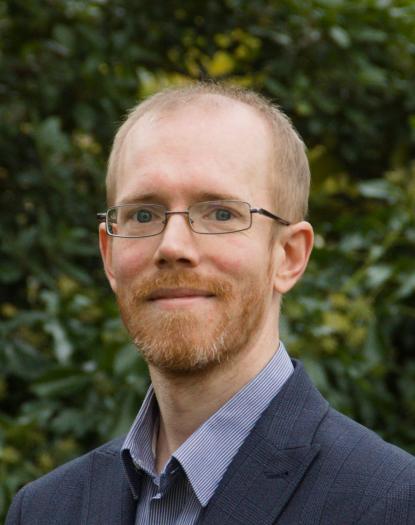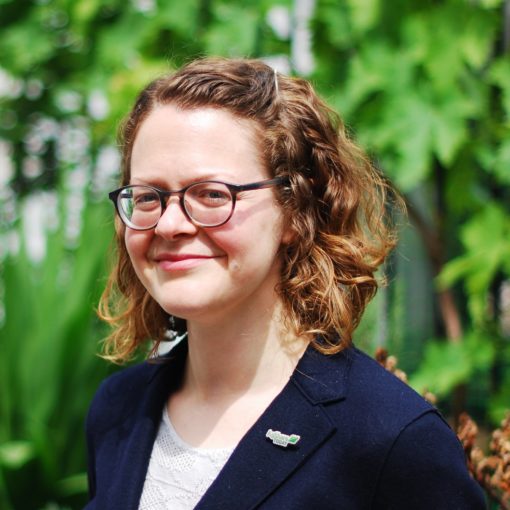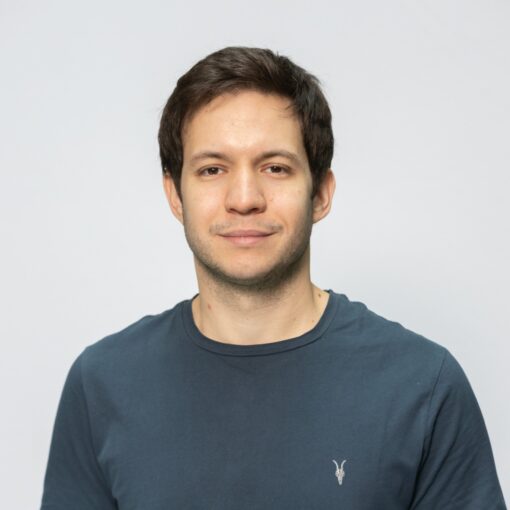PhD, University of Warwick, 2010
| CEO and Founder | |
|---|---|
| Oxomics | |
Year entered into a non-academic position: 2021
Job Highlight:the overall process of seeing the technology you work on
making steady progress and becoming something useful for the clinic.
Left academia after: After 10 years of postdoctoral work
What’s your background?
I did an undergraduate degree in biochemistry then went straight into a few research assistant positions before moving to Warwick to do my PhD. I came back to Oxford to take up a postdoctoral research position and spent the next 10 years developing the technology that forms the basis of my company.
Why did you move away from academia?
It became quite clear to me that technology developed in academia doesn’t immediately translate into the clinic, even if you develop it with translation in mind. Just because something is a good idea and works in an academic environment doesn’t mean it’s ever going to be used by patients. I had previously developed a disease classification technology that was progressing slowly to the clinic and I wanted to be involved in a more active capacity in getting my new technology into the hands of clinicians.
Is there anything you miss about academia?
Definitely getting down into the nitty gritty of data analysis. You have to understand the analysis to run a company but there’s not much opportunity to do it on a day-to-day basis. I’m still involved and I teach at one of the colleges which is a nice link back to the world of academia.
How did you get this job? Did you face any challenges when considering a move away from academia or applying for the role?
I was the only one of my co-founders who wanted to work for the company full time. In some ways it’s very easy to become CEO, you can just start a company and call yourself CEO. I didn’t have to apply for the role. Of course, incorporating a company is the easy part. Setting that company up for success and making sure that you have a viable business is a very different proposition. Almost every aspect of the job has been a challenge and I’ve had to master entirely new disciplines far removed from the kind of work I was doing as a researcher.
One of the key challenges that many researchers will also recognise is securing funding. I was working without salary at the beginning and that certainly provided a challenge to me, although it’s probably not what you would immediately think of as a work-related challenge.
What motivated you to/why did you choose the sector you transitioned into?
If you want to see any of your technology end up in the hands of clinicians you have to turn it from a functional academic tool into a regulated medical device. This is not a journey that is easy to accomplish from within academia. One of the most effective ways to give this kind of journey the best chance of success is to incorporate a spin out company and develop the technology for commercial use within the bounds of that company – so that’s what I chose to do.
Did you think you had the skills required for your current position before you started? Were you right?
When I began I had absolutely no idea of what it meant to be the CEO of your own company. I had no prior business experience and had no real concept of the kind of day-to-day tasks that would be involved in setting up a spin out company. As it turns out, some of my academic skills have been particularly useful, for example preparing written documents and arguments, as well as applying a logical process to problems and project management. Other skills, like stakeholder management and negotiation, are areas you don’t always get to practice as much in academia but are nevertheless vital to set up a successful company. Of course, if you’re continually aware of where your strengths and weaknesses lie, you can use this to your advantage and also use it to properly focus on particular areas for personal development.
How did your PhD prepare you for your current job? For example, what were the transferable skills that you developed during your PhD that are most relevant to your current job?
I think some of the most important transferable skills have been communication skills, project management skills, logical attention to detail, and a certain mental resilience for project setbacks. I didn’t develop these just during my PhD but have expanded upon them throughout my postdoctoral research life.
Did you have any preconceptions about your sector that proved to be wrong?
No matter how good your academic technology is, it will never become a successful company unless there’s a viable business model and a route to market. It’s very easy to lull yourself into a sense of security about how wonderful your academic invention is, but meeting with investors for the first time can be quite a harsh learning experience.
Can you describe a typical week in your job?
There is absolutely no typical week. I’ve been involved in every aspect of setting up the company which means everything from data analysis to meetings with lawyers and investors, to writing grants, to engaging with accelerator programmes and networking with other local companies, to writing press releases and speaking with journalists.
A lot of my time can be freely allocated by myself, but the calendar can easily fill up. The important bit is to try and identify what needs to be prioritised and stay focused on those priorities. It’s very easy to get side-tracked by seemingly important tasks that aren’t actually important in the grand scheme of things. I don’t have a big team and so I can’t afford to waste resources on unimportant activities.
What is the workplace culture like? Please include comments on work-life balance, flexibility, remote working?
I work for myself so I have complete control over workplace culture! I’m pretty much entirely working from home at the moment and my schedule is mine to use as I see fit. I tried to maintain regular working hours but there’s definitely been times when longer hours have been required to get past key hurdles.
Do people with a PhD frequently get hired in the company/sector?
Yes.
What are your favourite parts of your job?
I’m getting to see the technology that I invented move from academia towards the clinic. The further I get down this process the more I can see the end result and it’s an exciting thing to observe.
What are your reflections on your career path?
An enormous amount of my career to date has been driven by being in the right place at the right time and being prepared to make the right decisions. It would be nice to think that I planned everything from the outset but that’s not the case. Each transition was driven by a set of local circumstances which I took advantage of in each case.
Do you have any advice for current graduate students and postdocs considering a career outside of academia?
Go for it! There’s an entire world beyond academia with tonnes of different options available. Don’t undervalue your skills, have a chat with someone about how to prepare a CV that matches what people outside of academia will expect and start exploring your options.
What do you know now that you wish you’d known when exploring a transition?
That you can make a future for yourself in many different ways, in many different places and be quite happy with how it turns out. It’s very easy to get stuck in the “safe” mindset about careers, but safe is often not actually safe and not sustainable in the long term. Embrace the change.
Can you recommend any relevant resources, organisations or events that might help somebody new to the sector find out more about it?
I think if you’re serious about trying to spin out a company it’s important to get early feedback on your business ideas. One of the ways I did this was by applying to, and engaging with, accelerator programmes and similar. These were very helpful in refining and developing my ideas for how the company should work.
 Oxomics is developing a single-shot blood test for cancer diagnosis based upon the metabolomic analysis of blood.
Oxomics is developing a single-shot blood test for cancer diagnosis based upon the metabolomic analysis of blood.





